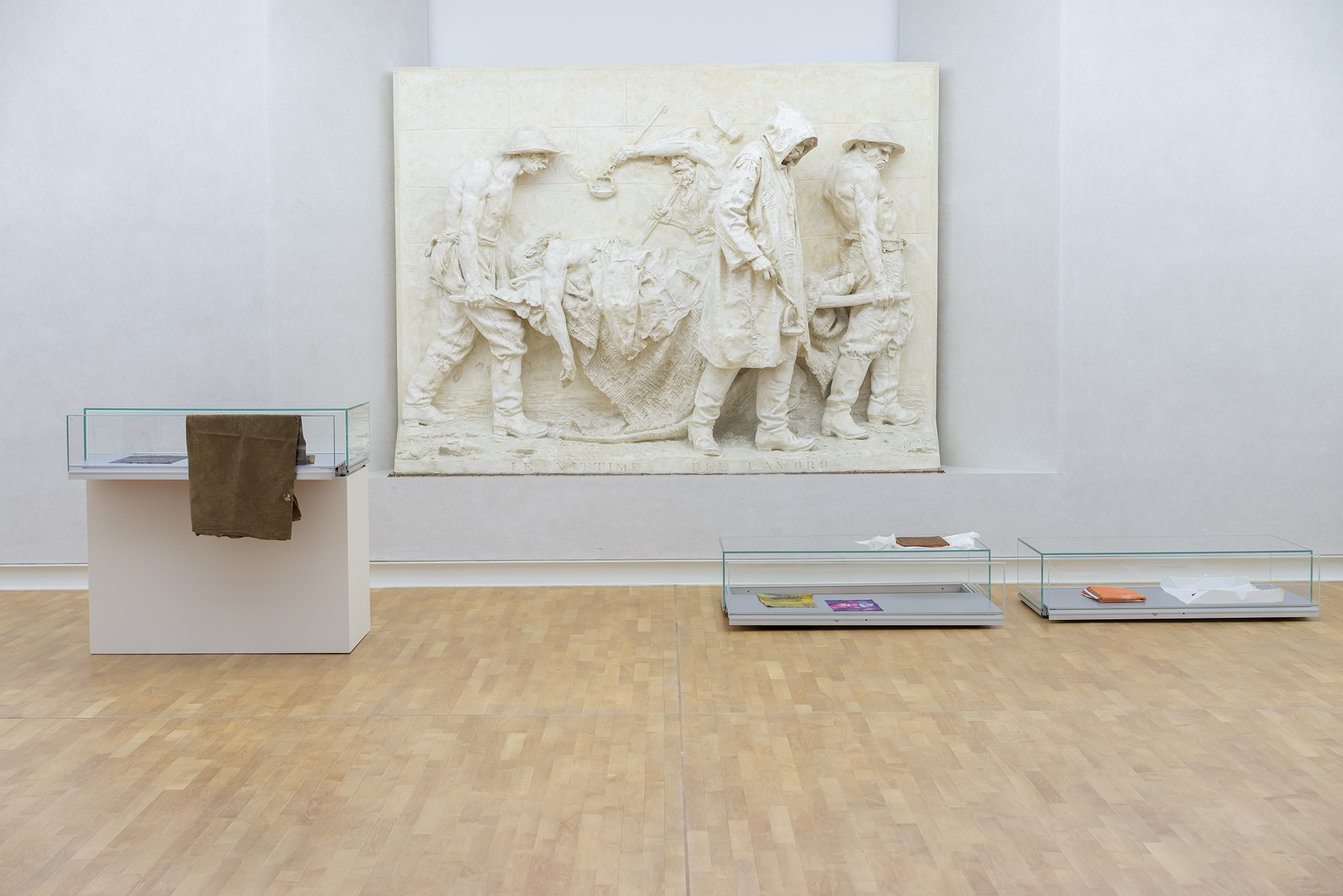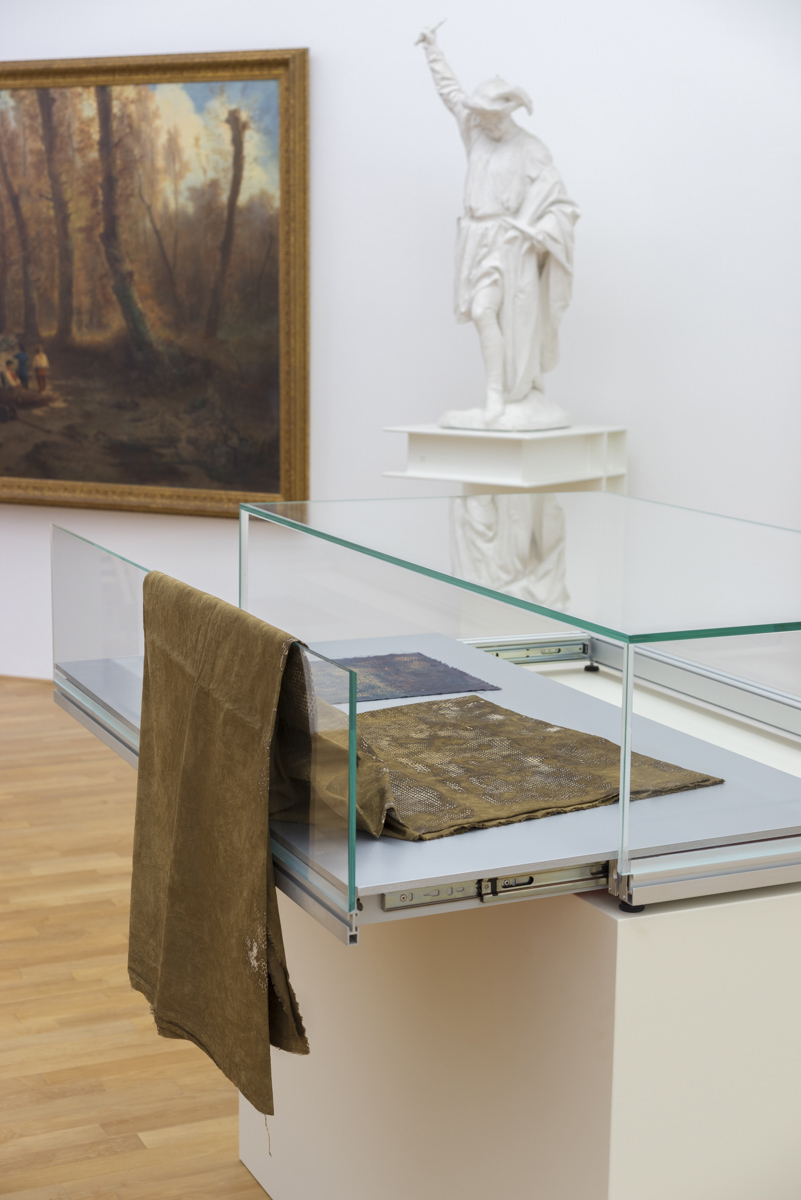︎ ︎︎
Proposal for a Flag (Royal Batik), 2016
Batik on cotton
Dimension Variable
In the wake of the International Workingmen’s Association Congress held in Geneva in 1866, a red flag featuring a beehive surrounded with flying bees had been embroidered with golden threat in order to represent the newly-established anarcho-socialist organisation.
Whereas for centuries bees and beehives had inspired a large number of thinkers, becoming a powerful and a striking conceptual tool to imagine an ideal form of society, in recent years the beehive metaphor had been widely used in the realm of political economy. Emphasizing the shift from a material to an immaterial labour, economists, such as Yann Moulier-Boutang, refer to a post-industrial society as a pollen society. What was considered as an externality of secondary importance in the industrial era, like bees pollination, cognitive and affective labour became today the very core of value production of the post-Fordist society.
To this end, Proposals for a Flag (Royal Batik), La mala mimesis, and Mal d’archive (Archive Fever) draw on ideas where common notions, such as work and production, may be undone and reconsidered according to constant deterritorialisation and riterritorialisation processes.
Batik on cotton
Dimension Variable
In the wake of the International Workingmen’s Association Congress held in Geneva in 1866, a red flag featuring a beehive surrounded with flying bees had been embroidered with golden threat in order to represent the newly-established anarcho-socialist organisation.
Whereas for centuries bees and beehives had inspired a large number of thinkers, becoming a powerful and a striking conceptual tool to imagine an ideal form of society, in recent years the beehive metaphor had been widely used in the realm of political economy. Emphasizing the shift from a material to an immaterial labour, economists, such as Yann Moulier-Boutang, refer to a post-industrial society as a pollen society. What was considered as an externality of secondary importance in the industrial era, like bees pollination, cognitive and affective labour became today the very core of value production of the post-Fordist society.
To this end, Proposals for a Flag (Royal Batik), La mala mimesis, and Mal d’archive (Archive Fever) draw on ideas where common notions, such as work and production, may be undone and reconsidered according to constant deterritorialisation and riterritorialisation processes.


